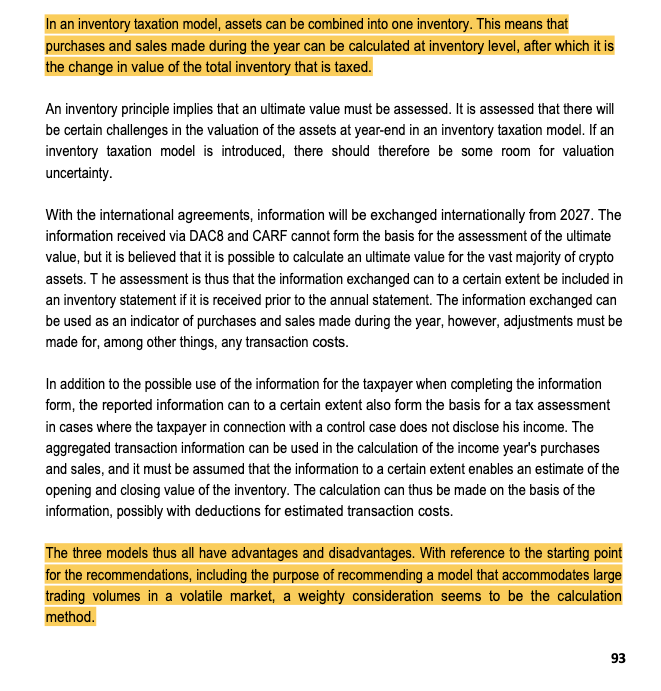Source: Cointelegraph
Denmark’s Tax Law Council has recommended introducing a bill that would tax unrealized gains and losses on crypto assets beginning as early as 2026.
Denmark’s Tax Law Council recommended introducing a bill that could potentially tax unrealized gains and losses on crypto assets held by Danish crypto investors beginning as early as 2026.
In its 93-page report on crypto asset taxes, the council recommended that all crypto assets be taxed according to the same set of rules. It mulled three potential models for taxing crypto assets in the country: capital gains tax, warehouse taxation and inventory taxation.
In the report, Danish Tax Minister Rasmus Stoklund said there had been numerous examples of Danish crypto investors being unfairly taxed under a common “capital gains tax” approach, and suggested that new tax rules should find a “simpler” way to tax crypto assets.
The recommendations are not indications the laws will take effect. Some on social media misinterpreted the report, suggesting the tax changes were definite.
The report appeared to lean toward recommending a method called “inventory taxation,” which treats an investor’s entire portfolio as a single “inventory” to be taxed by a certain date each year, regardless of whether or not the assets have been sold by that time.
“The so-called inventory taxation occurs as capital income and in return implies that the taxation occurs continuously, regardless of whether crypto-assets have been sold,” wrote the Tax Law Council.

Under the inventory model, crypto assets would be taxed alongside other financial assets such as stocks and bonds.
In short, Danes who own crypto assets could be taxed on both unrealized gains and losses of their crypto assets. The recommendations did not clarify how far back the new tax rules would apply to existing crypto asset holdings.
Additionally, the Tax Council shared that the bill would seek to require crypto asset service providers, such as crypto exchanges and crypto payment firms, to “report information about their customers’ transactions” in a way that would be accessible to all nations within the European Union.
The Tax Minister said the new bill will not be introduced to the Danish Parliament until early 2025. The Tax Law Council recommended that the rules not take effect until Jan. 1, 2026 at the earliest, if it is to become effective.
The recommendations in the report must be evaluated and decided upon by the Danish Parliament before they are put into law.
“It is my opinion that there is a need for clearer and more appropriate rules in the area. That is why I am also looking forward to putting forward a bill and discussing it with the parties in the Folketing.”
Denmark’s Tax Council’s recommendations come amid a broader move from other jurisdictions to crack down on taxes, both for crypto and traditional financial assets.
On Sept. 5, Democrat presidential candidate Kamala Harris endorsed a policy that would introduce a 25% tax on unsold assets in the US.
Similarly, the Italian government mulled raising the capital gains tax specifically for Bitcoin holdings from 26% to 42% beginning in 2025.

